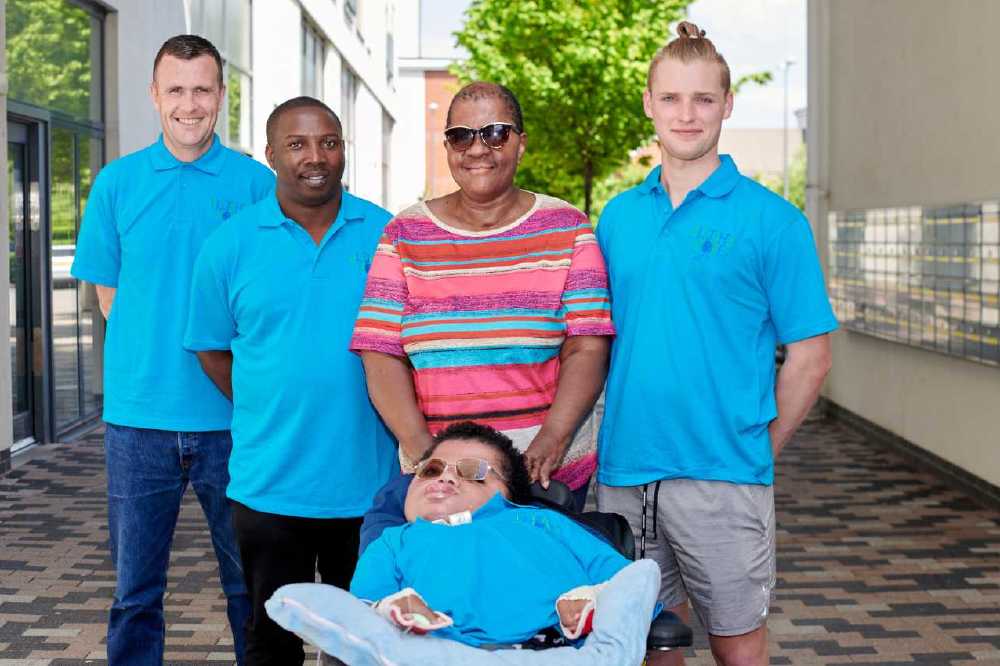This week is National Carers Week (7th-12th June 2022), where unpaid carers everywhere are celebrated. Kaddy Thomas is the Founder of the Carers Collective (www.carers-collective.co.uk) and is herself a carer to her 16-year-old son Elijah. She’s written this feature exclusively for Female First on her seven top tips for managing a caring role:

The Carers' Collective
Many of us don’t choose to become a carer. Something happens in life, and we take on that role. We do it because of love, because no one will care for our loved one the way we can, and sometimes because we simply have no other choice.
The reality is - any of us could become a carer at any given moment, whether for a child, a parent, elderly relative or someone close to us who can’t cope without our support. Statics show it can take up to two years for someone to recognise that they’re even in a caring role. You may be a carer for a short period, for multiple times in your life or perhaps for many years.
I have been my son’s carer for 16 years and I have learnt a lot along the way. In fact, I speak to many parent carers who talk of their caring role as a ‘journey’. It can bring many challenges and hurdles alongside the joy and satisfaction.
If you are a carer who is struggling with the myriad of responsibilities, or you are new to a caring role and baffled at how it’s all going to work then here are my top seven ways you can navigate being an unpaid carer.
1. Have a good support network
Or, to put it another way - ask for help! If you think you can do it all by yourself – please know that you can’t. So many carers speak of overwhelm, burnout, and exhaustion and then feel guilty for taking time for themselves. My mantra is, if you don’t look after you, you won’t be able to look after your loved one.
Ask someone to do the shopping, have a coffee, walk, or arrange an evening out with friends. Open up and share what you’re dealing with. A good support network of family and friends will want to help you.
2. Take time out for yourself
Make a list of all the things you love to do - which ones are possible? Is it a trip to the cinema or theatre? Perhaps a walk in the countryside? Even taking half an hour to sit and read a book, meditate, or taking a relaxing bath can benefit your mental and physical health.
3. A good sense of humour and the ability to laugh
Life can be far too serious at times. My sense of humour has got me through many a difficult time. Be around people who make you laugh, try to see the humour in situations, even watch or listen to comedy. Laughter releases endorphins which make us feel good and have huge benefits on our state of mind.
4. Having a ‘can do’ attitude
There are two types of people - the ‘cant’s’ and the ‘can-dos.’ Be a ‘can-do’! There is always a solution if you are willing to look, and it may not be what you expect. A can-do attitude means you are willing to deal with problems or new tasks, rather than complaining or giving up. Ask yourself - how can I? And just be with that - the solution will come.
5. Having a great coach or mentor
Having a coach changed everything for me. I manage a team as part of my son’s care package and having a coach in my life has made me a better manager, a better mum, and a better person all round. I can find solutions, grow my business, and manage the team. Sometimes we just don’t know what’s holding us back or why we feel a certain way. A coach or mentor can help you work things through and get you to look at things a different way.
6. Self-belief
You are more resourceful, and able than you realise. We all are. This means having a belief in your ability to complete tasks and achieve goals, whatever they may be. If you believe you are capable of success it will increase your chances of actual success.
7. Knowledge is power
Many carers talk about being the expert in whatever health condition their loved one is living with. You will see a lot of health and care professionals over the years, and you will often know more about the situation and condition than them. If someone says ‘no,’ or ‘we can’t’ – then read, research, talk to others, and find a way.
There are so many forums and social media groups you can join where you can ask advice from others who are dealing with similar circumstances. NHS staff are often overworked, and they see many people every day. As carers we have to become the experts, and that includes knowing your rights and the rights of your loved one so you can make informed choices about how they’re looked after.
Being a carer is not an easy role, many talk of compassion fatigue and there is a lot of guilt around that. But please know that there is help and support out there.
The Carers Collective can be found at: www.carers-collective.co.uk

